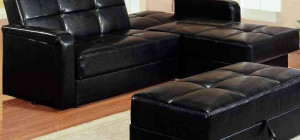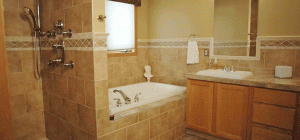 Natural stone flooring is wildly popular in modern kitchens and bathrooms. It has been used for centuries as it brings the colour and texture of nature into your home. Natural stone adds quality and warmth, which is not possible with any other material.
Natural stone flooring is wildly popular in modern kitchens and bathrooms. It has been used for centuries as it brings the colour and texture of nature into your home. Natural stone adds quality and warmth, which is not possible with any other material.
Also, this material offers a wide range of colours and quality. But, make sure you do your homework very well before purchasing natural stone for your kitchen flooring. Making the right choice for your kitchen flooring requires attention to cost, material, and foot traffic.
From limestone to the darkest stone and granite, the designs of natural stones vary a lot. So, here are the best options for your kitchen.
The Most Popular Natural Stone Flooring Materials
Stone floors add value to your property, and if you choose the right stone, you will not require changing it over the years. Here are the natural stones you can choose from:
Slate
You will find slate stone in many houses. It can be easily split into varied thicknesses and comes with a textured finish, making it perfect for wet areas.
The density of the slate decides the price. The denser it is, the more likely it will not fall apart.
It will cost you around £10 per m² from a high street or online supplier, up to £50 per m² for interesting colours and textures from specialist suppliers.
Marble
As the king of natural stone flooring, marble is considered one of the best choices for those looking to give a classic and elegant look to their kitchen. In its purest form, marble can be found in various shades such as grey, green, black, etc.
Marble is considered an expensive flooring material, yet it’s worth the investment with the polished and clean look. You can expect to pay from £50 per m² for the most basic tile to as much as £150 or £200 per m² for tiles with special colour-ways and finishes or decorative tiles. Though, there is a lot of price variation in limestone tiles.
If you’re looking to install marble flooring, you will need to offer extra care and maintenance than any other natural stone.
Granite
Granite is known to be one of the hardest natural stones out there. Nothing can repel water or hold a shine as it does. Its hardness and shine make it the perfect choice for natural stone flooring. Granite comes in different finishes, and its well-polished form reveals true colours and patterns. You will find various colours from blue and purple to grey and olive to red markings.
Granite will cost you around £30 per m² for basic and uniform tiles. If you want a large format tile, it will cost you from £50-£70 per m².
Travertine
Travertine is another commonly found stone. It is often sold as limestone because of its durability, which means you need to frequently clean and seal floor tiles. It has a porous surface with small holes, which give it a sponge-like look, and has fewer pits with more vibrant colour.
The cheapest travertine options are very affordable, ranging around £15 to £30 per m² and giving a similar effect to limestone.
Sandstone
Sandstone is a sort of delicate stone that needs extra care and maintenance than any other marble stone. The wild colour variations of other stones aren’t as prevalent with sandstone, and thus, it’s easier to find consistent stones with this kind of material.
The average cost of this sort of natural stone flooring can range between £7.5 and £35 per m².
Flagstone
Outdoor flooring applications in the past were mostly made by flagstone. However, this rust look has become popular in the kitchen flooring. The most attractive thing about flagstone is that it is often available in uneven tiles, so you can easily arrange them in mosaic styles to make an eye-catching floor surface. This kind of natural stone flooring is easy to maintain and is very affordable.
The Cost of Natural Stone Floor Tiles
The cost of natural stone varies and depends on the grade and quality of the stone you choose. Environment-friendly stones are more expensive than the other normal stones. However, if you’re buying it from a national retailer, you can expect to pay £30 per m² and £500 per m² for high-grade or rarer stones.
Tips for Maintaining Natural Stone Flooring
You need to prevent damages and staining, and it requires regular sealing. The supplier or installer you choose will provide you with the most appropriate products to use for your chosen material.
Regular sweeping can keep loose dirt away, and if required, natural stone flooring can be professionally cleaned and restored.








Natural stone is strong and durable. It isn’t slippery like ceramic and different materials, making it a secure alternative for house owners with children or pets.